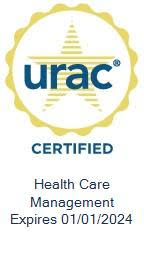Veyo in the San Diego Business Journal: Health Systems Try Ridesharing Solutions
September 20, 2019
Veyo was recently featured in the San Diego Business Journal in their feature on rideshare in healthcare by Jared Whitlock. The original article can be found here and is reprinted below.
——-
MEDICINE: GETTING PATIENTS TO APPOINTMENTS OR HOME IS GOAL
Health Systems Try Ride-Sharing Solutions
Tuesday, September 10, 2019
An increasingly common destination for Lyft and Uber drivers: San Diego hospitals.
UC San Diego Health, Palomar Health and Sharp HealthCare are tapping ride-hailing services to transport patients, in a shift away from vouchers for taxis and specialized vans.
Much like consumers, hospitals are turning to Uber and Lyft to lower costs, easily coordinate rides and for quicker pickups. The San Francisco companies — along with San Diego player Veyo — are jockeying for market share in nonemergency medical transportation, viewed as ripe for ride-sharing.
A pilot at UC San Diego Health covers Lyft rides for low-income patients lacking transport to home, another facility or a follow-up appointment. These patients — who generally have Medicare or certain Medi-Cal plans that don’t cover such transportation needs — are more likely to miss an appointment. Due to unreliable transportation, about 3.6 million Americans don’t make at least one medical appointment or delay medical care each year, according to the American Hospital Association. This can result in greater high-cost emergency care. That’s troubling for hospitals that more and more must demonstrate positive patient outcomes to keep payers happy.
UC San Diego’s pilot — part of a larger UC San Diego and Lyft pact to improve access to its campus and medical centers — calls upon the same Lyft drivers who cart people to the movies, beach or elsewhere. “These are just regular Lyft drivers,” said Amy Schultz, director of patient and guest services at UC San Diego. The pilot, which rolled out in February, provides rides to rescheduled appointments on the books because the doctor originally canceled at the last minute. “If a doctor has to cancel because of child-care reasons, for example, we would not only reschedule the patient, we would offer to provide them a Lyft to and from the facility,” said Schultz.
A month later the program expanded to patients of limited means or with unreliable transportation. UC San Diego foots the bill of patient rides. Five months into the pilot there were 287 trips, at an average cost of $28.63 a ride, or 36% less expensive than taxi rides. Schultz said the number of Lyft trips is bound to increase with the pilot expanding into other areas where the hospital traditionally offered taxi vouchers. Part of the appeal is that case managers can easily hail a Lyft ride, cutting down on coordination. In addition, Schultz said special requests can be made, like a car that rides lower to the ground for a patient with trouble lifting their legs.
Veyo deploys automated dispatch and tracking software that made ride-sharing a hit. But Joshua Komenda, Veyo’s president and founder, said Uber and Lyft can’t match its prowess in the health care realm. For one, Veyo’s independent drivers undergo broad training — notably in cardiopulmonary resuscitation, or CPR, and Health Insurance Portability and Accountability Act, or HIPPA, confidentiality.
“We’ve done over eight million trips and we’ve seen a lot of things happen unexpectedly,” Komenda said. “Oftentimes when you’re transporting folks in poor health or with health challenges, it’s important that drivers know what to do if someone goes into diabetic shock in the back seat, or faints after a dialysis treatment.” As other selling points Komenda said the company brings vast experience in health care compliance, credentialing and helping manage health plans. Veyo contracts with state agencies and plans to serve a given population — largely those with Medicaid, or Medi-Cal as it’s known in California. The company — which has 500 employees, 120 of which are in San Diego — is looking to develop partnerships with hospitals as well.
Palomar Health coordinates Uber rides on behalf of patients who discharged from the emergency room, supplanting costly taxis. Hospital spokesman Derryl Acosta stressed that only patients who can’t afford a ride get one. “We don’t provide everyone with free rides,” Acosta said. Palomar staff schedules rides via Uber Health, which like Lyft’s program, features a dashboard that’s compliant with HIPAA. Every month Uber bills Palomar Health, not patients, according to Acosta. Sharp HealthCare, which has a pilot with Lyft, declined to comment.
Although all the rage in recent years, ride-sharing may not be a silver bullet to reduce patient no-shows. A 2018 study published in JAMA Internal Medicine found a similar missed appointment rate among patients offered a free Lyft ride and those who weren’t. Lisa Sharp said hospitals are only beginning to understand which patients benefit from ride-sharing. Some who are prone to missing appointments might need a reminder beforehand, not a free ride, for example. “It’s important to understand the problem. How do you screen for patients with transportation problems?” said Sharp, who has studied the issue as an associate professor of pharmacy systems, outcomes and policy at the University of Illinois Hospital & Health Sciences System.
Sharp added another challenge is that ride-sharing candidates may be wary. Think seniors who don’t like the idea of getting in the car with a stranger. Hospitals are looking to improve transportation in other ways. Ambulances that transport critically ill patients between Scripps Health campuses now include Scripps nurses. Having specialty nurses on board with emergency medical technicians elevates continuity, Scripps says. “With the sickest patients continuity of care is essential,” said Juliann Eigner, a registered nurse who has spearheaded the critical care transportation program. Available 24-hours a day, a typical patient has suffered brain trauma, stroke or respiratory failure. Scripps pledged $1 million to the program, which is a partnership with the ambulance operator American Medical Response. It went live in January. “Scripps is this first to do this for adult critical care transport in San Diego County,” Eigner said. The key word there is adult; Eigner noted Rady Children’s Hospital has a critical care transportation program as well.
Want to learn more about our efforts in healthcare?
Download our latest white paper: Ridesharing in NEMT.




